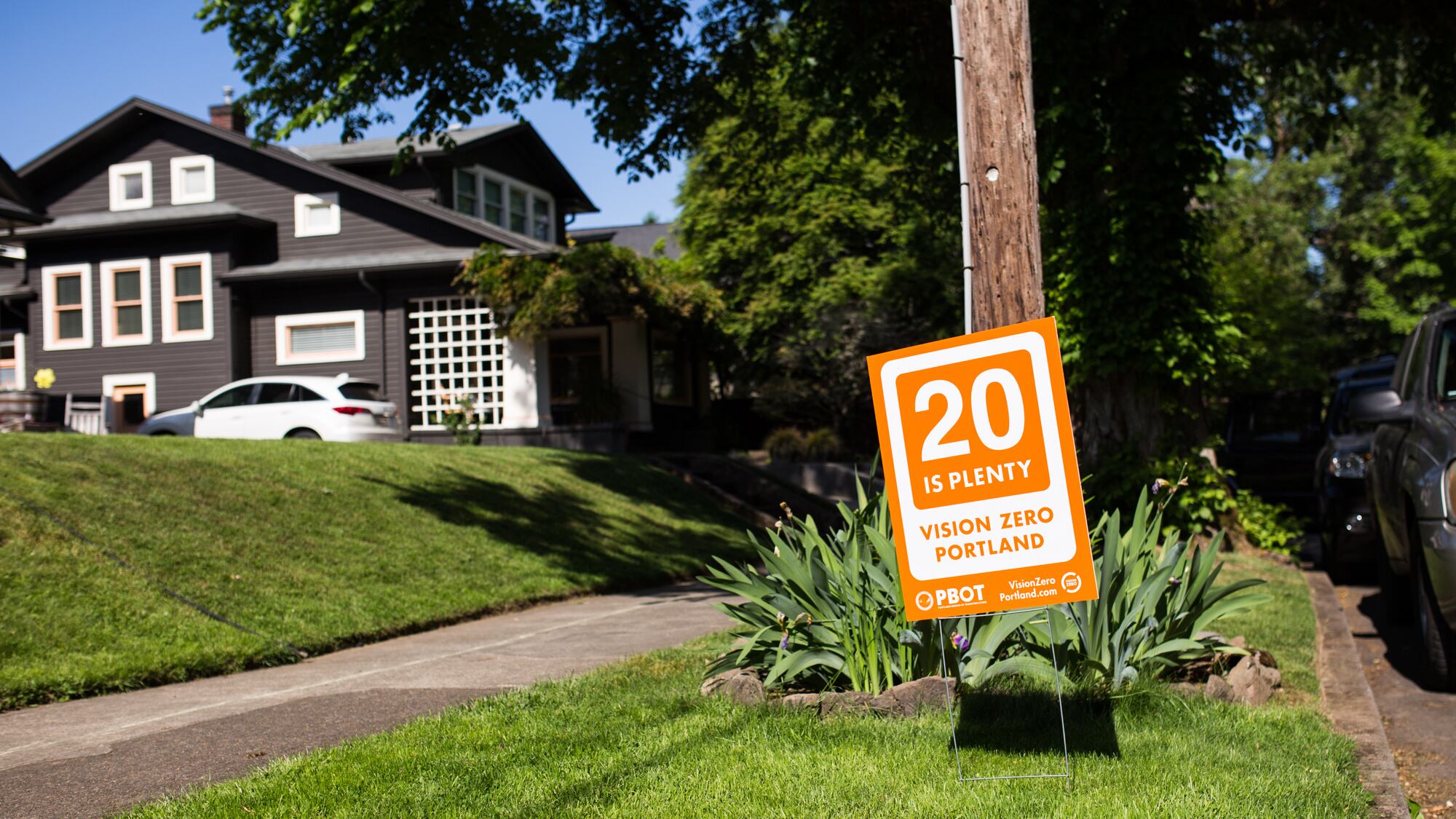Portland is lowering in-city speed limits to 20 or 25 mph to improve pedestrian safety. Since cars are less efficient at 20 to 25 mph than 30 to 35 mph, what CO2 penalty will we pay to protect smartphone sleepwalkers who can't stay on the sidewalk?—Dan V.
I'm sympathetic to your implied viewpoint, Dan—like you, I've seldom encountered a public policy problem that I didn't feel could be solved by culling the herd. Unfortunately, in this case, the weight of scientific evidence is heavily arrayed against us.
For starters, a 20 mph speed limit—as joyless as it sounds—really is obscenely safer. When London imposed a 20 mph limit, traffic casualties dropped by 42 percent. Other studies have shown that reducing a car's speed from 30 mph to 20 mph boosts a pedestrian's chance of surviving an impact from 55 percent to 95 percent.
But what about the poor planet? Are the lives of a few succulent pedestrians really worth all the extra emissions generated by dawdling along at 20 mph?
I'm afraid I have bad news: Lower urban speed limits actually reduce emissions, in several ways.
The first is pretty straightforward: When car trips become more time-consuming, people take fewer of them. Fewer miles traveled equals fewer emissions.
Admittedly, this doesn't do much to assuage the suspicion that the real goal of reduced speed limits is to make driving so unpleasant no one wants to do it anymore. However, lower speed limits also increase fuel efficiency on a straightforward, mile-for-mile basis—stop-and-go driving burns less fuel when you're only accelerating from 0 to 20 rather than 0 to 35.
For those of us who like to drive, all of this is a bitter pill to swallow, and it's certainly tempting to simply ignore the scientific consensus that reduced speed limits are good policy.
But then, of course, we'd lose the moral high ground that lets us sneer at anti-vaxxers, climate deniers, flat-earthers and other head-in-the-sand types. Better to face the truth—even if it means getting used to doing our sneering from the bus.

